TRACK 1 SPEAKERS

Liuchen Chang’s
Guest for Opening Ceremony

Liuchen Chang’s
Guest for Opening Ceremony
Liuchen Chang received B.S.E.E. from Northern Jiaotong University in 1982, M.Sc. from China Academy of Railway Sciences in 1984, and Ph.D. from Queen’ University in 1991. He joined the University of New Brunswick in 1992 and is a Professor Emeritus at UNB. He was the NSERC Chair in Environmental Design Engineering during 2001-2007, and the Principal Investigator of Canadian Wind Energy Strategic Network (WESNet) during 2008-2014. He is a long-time volunteer for IEEE for over 28 years and is the President of the IEEE Power Electronics Society (2021-2022).
Dr. Chang was a recipient of CanWEA R.J. Templin Award in 2010 for his contribution in the development of wind energy technologies, Innovation Award for Excellence in Applied Research in New Brunswick in 2016 for his contributions in smart grid and renewable energy technologies, and PELS Sustainable Energy Systems Technical Achievement Award in 2018 for his contributions in distributed energy systems. He is a fellow of Canadian Academy of Engineering (FCAE). He has published more than 370 refereed papers in journals and conference proceedings. Dr. Chang has focused on research, development, demonstration and deployment of renewable energy based distributed energy systems and direct load control systems.

Tatiane Costa
Battery Energy Storage System (BESS) for microgrid application.

Tatiane Costa
Battery Energy Storage System (BESS) for microgrid application.
ABSTRACT
The growth in the use of renewable energy sources (such as solar and wind) connected to the grid requires a power system with greater flexibility to guarantee efficient integration between the sources and the grid. Islands and off-grid systems also receive a significant application of renewable energies and need to guarantee the quality of supply.
Battery energy storage systems (BESS) emerge from the leading solutions that can provide resilience and reliability in the grid and islanded electrical networks. The motivation is due to the remarkable capacity to absorb, retain and then re-inject electricity quickly. This response can vary from seconds to milliseconds depending on the technology.
BESS offers several applications such as variable renewable energy smoothing, peak shaving, backup, black start, frequency regulation, voltage control, and microgrid. In the latter case, the generation system operated by diesel generators is replaced by BESS. The diesel generator has the backup function when renewable generation is not available, and the energy store cannot act at the moment. The lecture addresses the applications of BESS with a focus on microgrids.
SHORT BIOGRAPHY
Tatiane Silva Costa is a Ph.D. student in electrical engineering at the University of Campinas (UNICAMP). She obtained her master's degree in engineering from UNICAMP and a bachelor's degree at the Federal University of Western Pará (UFOPA). Researcher and developer of microgrids and battery energy storage system at the Edson Mororó Moura Institute of Technology - ITEMM. Member of IEEE and the Laboratory of Energy and Photovoltaic Systems of UNICAMP.

Atif Iqbal
Wireless Battery Charging System-Challenges and Trends

Atif Iqbal
Wireless Battery Charging System-Challenges and Trends
Abstract
The electric or hybrid vehicles are receiving significant attention in our search for better utilization of energy sources, improvement of the environment, all in an attempt to reduce carbon footprint and the global consumption of fossil fuels. It is expected that with the electrification of transport infrastructure, the operating cost and pollution will be reduced when compared to the actuation method based on traditional fuels. For electric vehicles, batteries are required for traction actuation and are required to be charged when the vehicle is stationary or in motion. There are charging stations where the batteries of the cars are charged through direct connection to the utility grid and the other chargers being developed using wireless power transfer technologies (WPTT) are becoming common. Wireless power transfer is privileged and desirable by electric vehicle owners, because the vehicle is isolated from the grid and no cables, plugs and connectors are required. Furthermore, charging can be undertaken during inclement weather and is fully autonomous. For a stationary WPTT, the driver parks the vehicle on a charging pad platform and the vehicle based batteries are wirelessly charged; while in the dynamic charging facility the batteries are charged while the vehicles are in motion, making it possible for the vehicle to run continuously. Cost consideration presently makes dynamic charging very prohibitive. The talk will elaborate the fundamental concepts of EV charging system. Prons and cons of different charging schemes will be elaborated. A detailed discussion on state of the art in Wireless battery charging system will be given. The challenges and trends in wireless battery charging system will be given in the talk. Some simulation and experimental results will be discussed.
SHORT BIOGRAPHY
Atif Iqbal, Fellow IET (UK), Fellow IE (India) and Senior Member IEEE, Vice-Chair, IEEE Qatar section, DSc (Poland), PhD (UK)- Associate Editor, IEEE Trans. On Industrial Electronics, IEEE ACCESS, Editor-in-Chief, I’manager Journal of Electrical Engineering, Former Associate Editor IEEE Trans. On Industry Application, Former Guest Associate Editor IEEE Trans. On Power Electronics. Full Professor at the Dept. of Electrical Engineering, Qatar University and Former Full Professor at the Dept. of Electrical Engineering, Aligarh Muslim University (AMU), Aligarh, India. Recipient of Outstanding Faculty Merit Award academic year 2014-2015 and Research excellence awards 2015 and 2019 at Qatar University, Doha, Qatar. He received his B.Sc. (Gold Medal) and M.Sc. Engineering (Power System & Drives) degrees in 1991 and 1996, respectively, from the Aligarh Muslim University (AMU), Aligarh, India and PhD in 2006 from Liverpool John Moores University, Liverpool, UK. He obtained DSc (Habilitation) from Gdansk University of Technology in Control, Informatics and Electrical Engineering in 2019. He has been employed as a Lecturer in the Department of Electrical Engineering, AMU, Aligarh since 1991 where he served as Full Professor until Aug. 2016. He is recipient of Maulana Tufail Ahmad Gold Medal for standing first at B.Sc. Engg. (Electrical) Exams in 1991 from AMU. He has received several best research papers awards e.g. at IEEE ICIT-2013, IET-SEISCON-2013, SIGMA 2018, IEEE CENCON 2019, IEEE ICIOT 2020, ICSTEESD-20 and Springer ICRP 2020. He has published widely in International Journals and Conferences his research findings related to Power Electronics, Variable Speed Drives and Renewable Energy Sources. Dr. Iqbal has authored/co-authored more than 450 research papers and four books and several chapters in edited books. He has supervised several large R&D projects worth more than multi million USD. He has supervised and co-supervised several PhD students. His principal area of research interest is Smart Grid, Complex Energy Transition, Active Distribution Network, Electric Vehicles drivetrain, Sustainable Development and Energy Security, Distributed Energy Generation and multiphase motor drive system.

Prof Dan Rogers
New Power Electronic Interfaces for Battery Energy Storage

Prof Dan Rogers
New Power Electronic Interfaces for Battery Energy Storage
Abstract:
Battery energy storage systems are inherently modular because they are made up of many cells. Modular power electronic converters are a flourishing research field. It therefore seems natural to use modular power converts for battery energy storage interfaces – but this is not done by any of the major manufactures, who tend to use large, monolithic, conventional DC-link inverters. This talk will present some multi-level converter topologies and control techniques suitable for battery energy storage systems and discuss why they might (and might not) find use in large energy storage systems of the future.
Short Biography:
Daniel J. Rogers (Senior Member, IEEE) received the M.Eng. and Ph.D. degrees in electrical and electronic engineering from the Imperial College London, London, U.K., in 2007 and 2011 respectively. He is an Associate Professor with the Department of Engineering Science, University of Oxford, Oxford, U.K. He conducts research in collaboration with industry and is currently an Investigator on UK EPSRC research projects in the areas of power electronics, grid-scale energy storage, microgrids, and HVdc transmission. His research interests include the use of medium- and large-scale power electronic systems to create flexible electrical networks that take advantage of a diverse range of generation and storage technologies.

Dr Thiwanka Wijekoon
Energy Storage System Integration to Solar PV - Challenges, Trends and Applications Scenarios

Dr Thiwanka Wijekoon
Energy Storage System Integration to Solar PV - Challenges, Trends and Applications Scenarios
Abstract:
Integrating battery energy storage with Photovoltaic (PV) systems in the distribution network becomes an economical solution which facilitates continued uptake of domestic PV system installations in the EU and many parts of the world supporting self consumption. Large scale storage systems for utility scale Solar PV plants enable essential grid support activities, peak shaving, fast Frequency response support, inertia support ..etc to facilitate increasing power electronic based generations to grid. Increasing concerns regarding environmental and climate change issues, incorporating sources of renewable energy into power networks across the world will be the key for a sustainable future. Some of the key challengers in utilising storage elements to Solar PV systems will be addressed in this talk.
Short Biography:
Thiwanka Wijekoon (M’04–SM’14) is currently the Power Electronics Technology Leader of Huawei's Nuremberg Research Center in Germany since 2016. He received the B.Sc. (Hons.) degree in Electrical and Electronic engineering from the University of Peradeniya, Sri Lanka, in 2001 and the Ph.D. degree in Electrical and Electronics Engineering from the University of Nottingham, U.K., in 2006. He was a Lecturer in Electrical and Information Engineering at the University of Ruhuna, Sri Lanka, until 2003. From 2006 to 2010, he has been a Postdoctoral Research Fellow at the PEMC group, University of Nottingham working on power converters for more electric aircraft technology. In 2010, he joined GE Global Research-Europe as a Lead Research Engineer in the High Power Electronics Lab, working on large power converters for drives in O&G processing, MVDC transmission systems, Subsea electrification and DFIG wind converters. His current research interests include power-electronic converter topologies, modulation, control, WBG based design of converter systems for applications in Solar PV, UPS and EV. He holds more than 18 granted patents to date and 21 more patent applications pending as well as co-authored more than 25 technical papers.
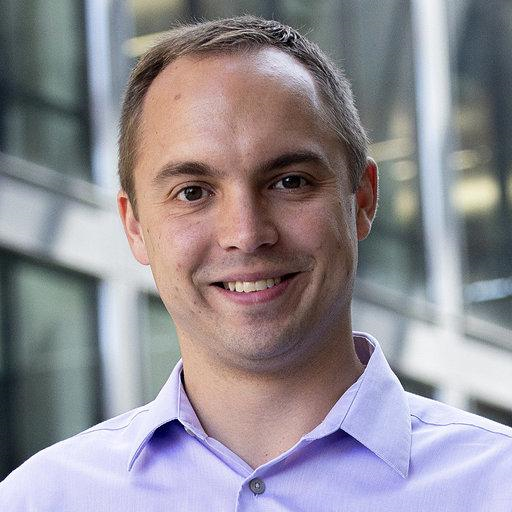
Dr. Alex Hanson
Why Young PELS Members Must Master Magnetics

Dr. Alex Hanson
Why Young PELS Members Must Master Magnetics
Abstract
We are entering a power conversion landscape where magnetics are an extreme bottleneck to miniaturization and high efficiency. Magnetic components already account for ~50% of the volume and loss in many modern converters, and we will explore how improvements in wide-bandgap devices and increased switching frequencies will make the design of magnetic components even more central as young PELS members come of age in their careers. We will discuss attempts to eliminate magnetic components from power converters and will see that such attempts actually reinforce this argument. We will conclude by noting some exciting advances and areas of inquiry available to those willing to master power magnetics.
Keywords:
magnetics, education, power conversion
Short Biography
Alex Hanson received the BE degree from Dartmouth College in 2014 and the SM and PhD degrees in electrical engineering from the Massachusetts Institute of Technology in 2016 and 2019, respectively. In 2016, he received the William M. Portnoy award for his work on MHz-frequency magnetic components for power conversion. He is currently an Assistant Professor in the ECE department in the University of Texas at Austin in Austin, TX. His research interests are in high-frequency power conversion, including magnetic components/materials, circuits, and systems.
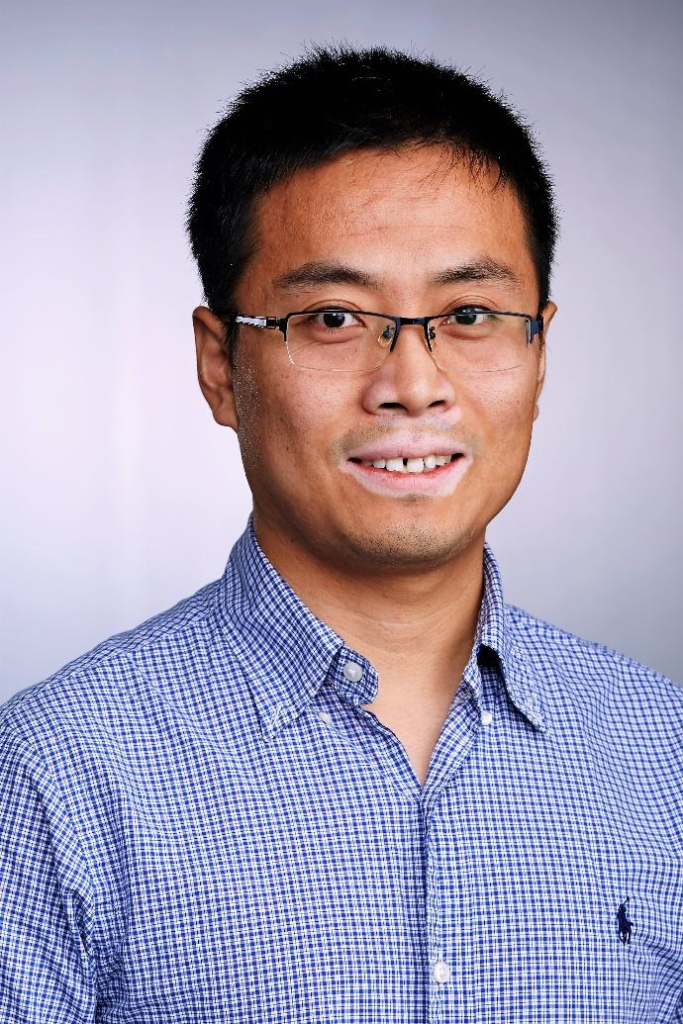
Dr. Lingxiao (Lincoln) Xue
GaN implementation in Fast Chargers for Consumer Electronics

Dr. Lingxiao (Lincoln) Xue
GaN implementation in Fast Chargers for Consumer Electronics
Abstract: Gallium Nitride switch has found its first mass-produced application in consumer electronics chargers, with the technical push on high power and small size. Why is it this application that became the first win for GaN? What are the technical issues addressed during this commercialization effort? What will be the future of this application and unsolved issues? This presentation will try to answer those questions by leveraging the authors’ firsthand experience in this industry.
Short Biography:
Dr. Lingxiao (Lincoln) Xue received the B.S. and M.S. degrees from Zhejiang University, Hangzhou, China, in 2006 and 2008, respectively, and the Ph.D. degree from Virginia Tech, Blacksburg, VA, USA, in 2015, all in electrical engineering. He was a Senior Staff Applications Engineer at Navitas Semiconductor, El Segundo, CA, USA between 2015 to 2019. Since 2019, he has been a R&D Staff Member in Oak Ridge National Laboratory. His research interest includes high frequency, high density wide bandgap device power conversion and transportation electrification. Dr. Xue is currently an Associate Editor of IEEE Open Journal of Power Electronics. He also served in the IEEE Power Electronics Society as the Young Professionals Chair, and Coastal Los Angeles Section Chapter Chair.
TRACK 2 SPEAKERS

Katherine A. Kim
Guest for Opening Ceremony

Katherine A. Kim
Guest for Opening Ceremony
Short biography
Prof. Katherine A. Kim received the B.S. degree in Electrical and Computer Engineering (ECE) from the Franklin W. Olin College of Engineering in 2007. She received the M.S. degree and Ph.D. degrees in ECE from the University of Illinois at Urbana-Champaign in 2011 and 2014, respectively. She was an Assistant Professor of ECE at Ulsan National Institute of Science and Technology (UNIST), Ulsan, South Korea, from 2014-2018. Since 2019, she has been an Associate Professor of Electrical Engineering at National Taiwan University, Taipei, Taiwan. She received the Outstanding Teaching Award from UNIST in 2015, the Richard M. Bass Outstanding Young Power Electronics Engineer Award from IEEE PELS in 2019, and recognition as an Innovator Under 35 for the Asia Pacific Region by the MIT Technology Review in 2020. For IEEE PELS, she served as the Student Membership Chair in 2013-2014, PELS Member-At-Large for 2016-2018, PELS Women in Engineering Chair in 2018-2020, and currently is the PELS Constitution and Bylaws Chair.
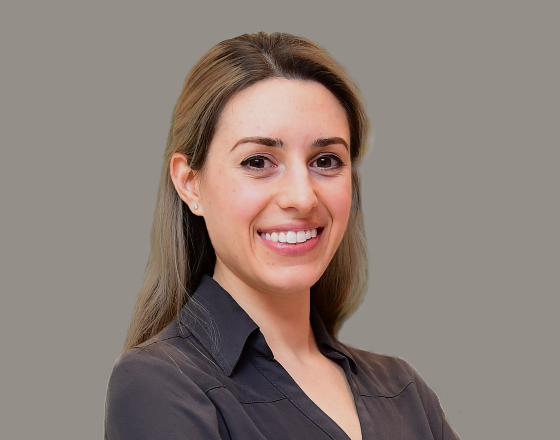
Christina DiMarino
Wide-bandgap power semiconductor packaging for electrified transportation

Christina DiMarino
Wide-bandgap power semiconductor packaging for electrified transportation
Short biography
Christina DiMarino is an assistant professor at Virginia Tech in the Center for Power Electronics Systems (CPES). She received her M.S. and Ph.D. degrees in electrical engineering from Virginia Tech in 2014 and 2018, respectively. From 2015 to 2018, she was the student membership chair for the IEEE Power Electronics Society (PELS). She is currently a Member-at-Large for the PELS Administrative Committee, and is on the steering committees for the PELS Students and Young Professionals, PELS Women in Engineering, IEEE International Technology Roadmap for Wide-Bandgap Power Semiconductors, and PELS Mentorship Program. She is also on the advisory board for PCIM Europe. She is the advisor of the PELS Student Branch Chapter at Virginia Tech, and is a member of the ECE Diversity and Inclusion Committee at Virginia Tech. Her research interests include power electronics packaging, high-density integration, medium-voltage power modules, and wide-bandgap power semiconductors.
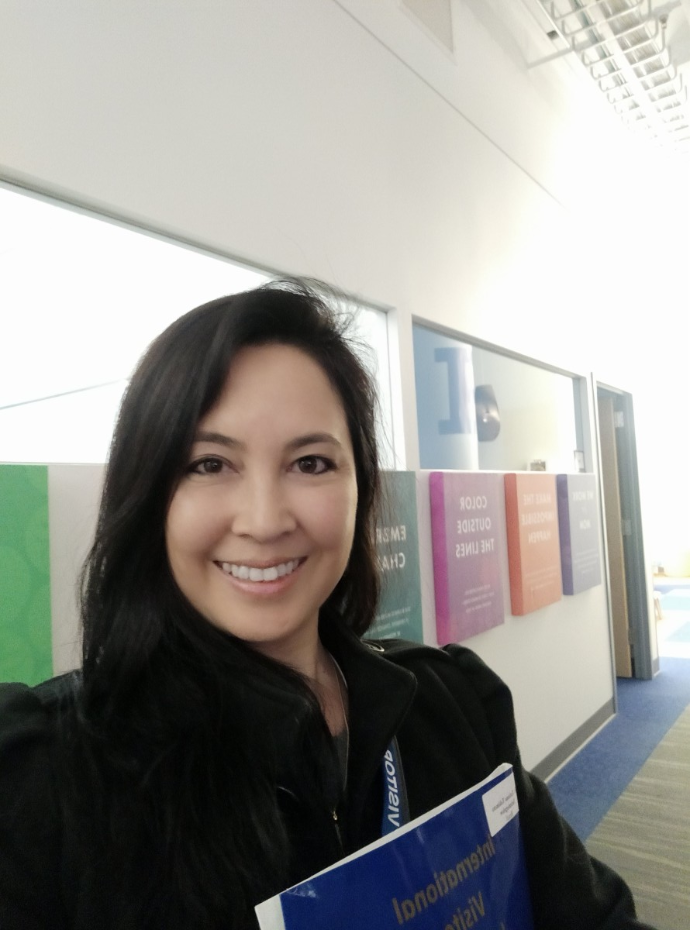
Tatiana Takimoto
Changing ourselves to change the old ways: how diversity is part of a new culture in companies.

Tatiana Takimoto
Changing ourselves to change the old ways: how diversity is part of a new culture in companies.
Short-biography
Tatiana Takimoto is a social entrepreneur, specializing in Diversity, Equity and Gender. Electrical Engineer and Graphic Designer, Master in Knowledge Management from the Federal University of Santa Catarina. Active in the technology sector for over 20 years. She was a member of the International Visitor Leadership Program promoted by the US Embassy, a true source of inspiration for current diversity programs around the world. She is the founder of the NGO Corali, an institution dedicated to creating bridges between women and the innovation ecosystem.
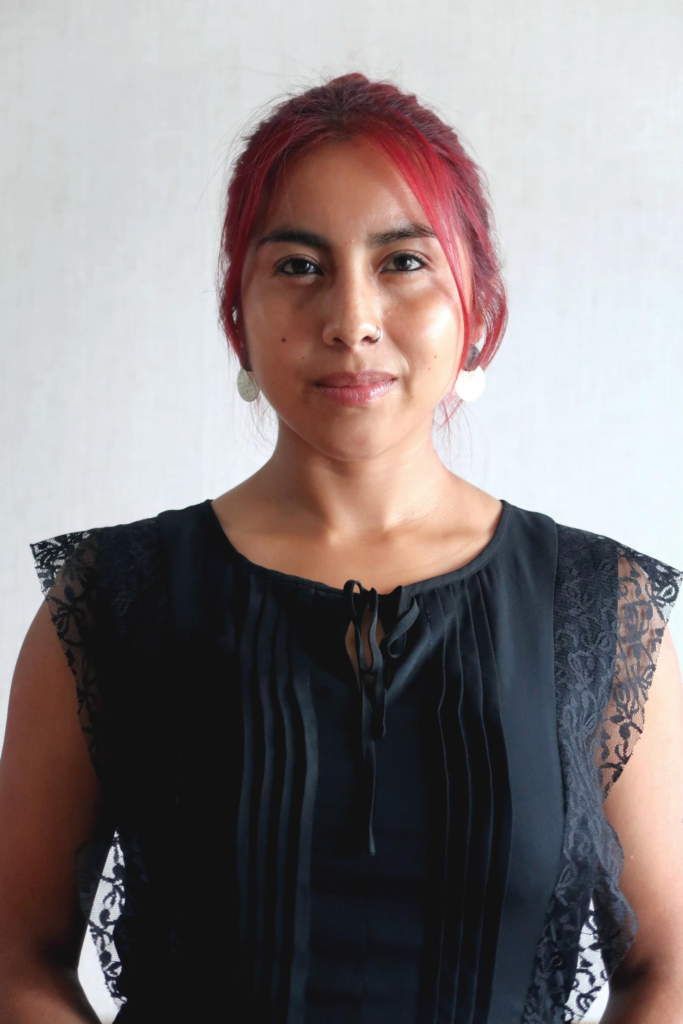
Diana Lopez
Photovoltaic micro-inverters: topologies and industrial trends

Diana Lopez
Photovoltaic micro-inverters: topologies and industrial trends
Short biography
I was born in Quito, Ecuador, in 1989. In 2013, I received the Engineer degree from the Escuela Politecnica Nacional (EPN), Ecuador. At the beginning of this year, I presented the PhD exam in electronics engineering from Universidad Tecnica Federico Santa Maria (UTFSM), Valparaíso, Chile. The doctoral thesis, entitled “High Voltage Ratio Step-up Converters for Photovoltaic Microinverters” presents a comprehensive study of three non-linear control strategies for the single-stage step-up dc-ac topologies for PV microinverters configuration. Now, I am beginning a Postdoctoral in the Energy Transformation Center from Universidad Andres Bello, Chile. My research interests include power electronics and control, renewable energy conversion systems, photovoltaic systems, microinverter configuration, dc-dc converters and dc-ac converters.
TRACK 3 SPEAKERS

Eduardo Façanha de Oliveira
My experience at the Industry and the Academic work environment

Eduardo Façanha de Oliveira
My experience at the Industry and the Academic work environment
Short biography
Eduardo F. de Oliveira received the bachelor's and master's degrees in electrical engineering from the Federal University of Ceará, Ceará, Brazil, in 2010 and 2013, respectively. In 2013 he joined the Centre of Competence for Distributed Electric Power Technology (KDEE) - University of Kassel as a member of a research staff, where he is also working toward his Ph.D. topic concerning GaN‑based DC/DC converter for electric vehicles applications. Since May 2020 he is with the Huawei Research Center in Nuremberg as a senior engineer in automotive power electronics design. His research focuses on design and integration of high performance power converters for automotive applications. Oliveira received the Young Scientist Award from the Brazilian National Council for Scientific and Technological Development (CNPq) in 2010.

Renan Pillon Barcelos
Closing Ceremony for Track - Experience talk - SYPS awards

Renan Pillon Barcelos
Closing Ceremony for Track - Experience talk - SYPS awards
Short Biography
Renan Pillon Barcelos is a Ph.D. student in power electronics at the Swiss Federal Institute of Technology in Lausanne (EPFL). He obtained his master's degree in engineering from Federal University of Santa Catarina and a bachelor's degree at the Federal University of Santa Maria. Renan joined the IEEE volunteer community in 2016, and since then, he has been working to promote more student activities for PELS members. Renan is currently the PELS Student Membership chair (2021-2022) and a PELS YP team member. His area of research is in DC power systems.
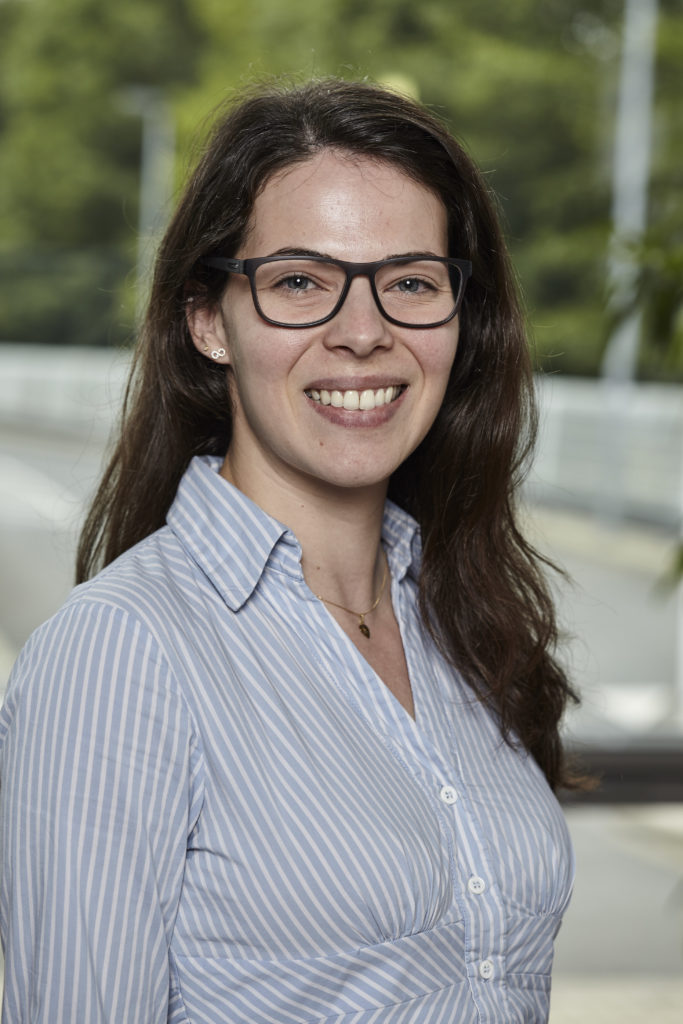
Andressa Colvero Schittler
How was your first experience in Industry

Andressa Colvero Schittler
How was your first experience in Industry
Short Biography
Ms. Schittler has received her B.Sc. and M.Sc. degrees from the Federal University of Santa Maria (Brazil) in Electrical Engineering, in 2010 and 2012 respectively, and is currently working towards her doctoral dissertation at the University of Kassel, focusing on EMI in power electronics. From 2012 to 2016 she was with the Center of Competence for Distributed Electric Power Technology (KDEE). Since 2016 she is with Infineon Technologies AG, working on the development of IGBT modules.
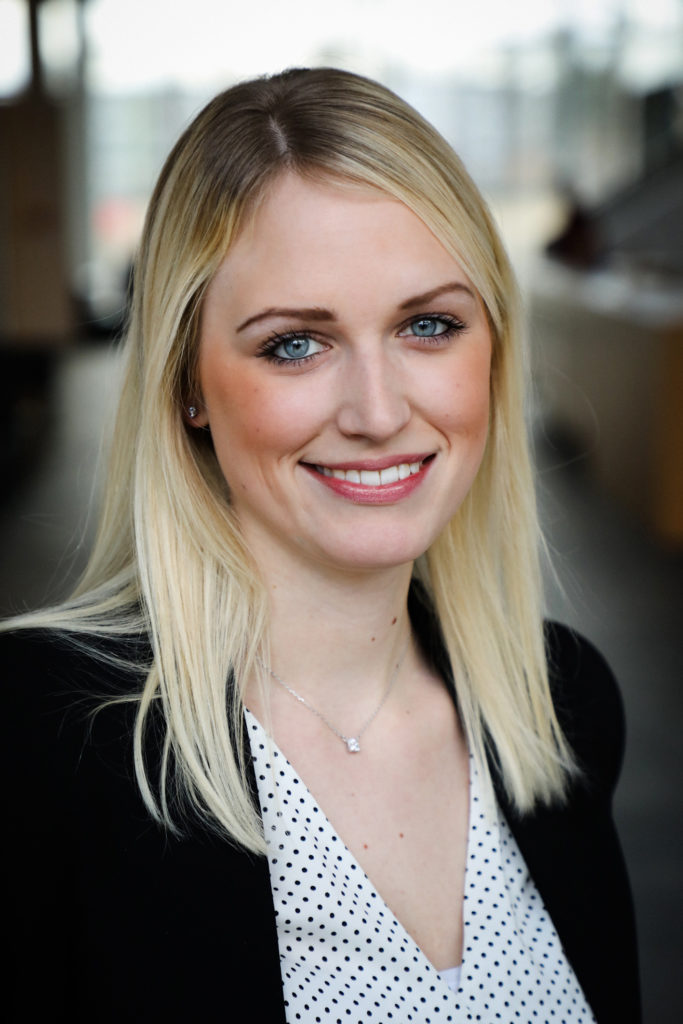
Johanna Junghoelter
Good practices and desirable qualities for successful candidates.

Johanna Junghoelter
Good practices and desirable qualities for successful candidates.
This panel intends to bring good practices and desirable qualities for successful candidates for power electronics positions. Panelists provide their experience and tips on how to show your features during an interview properly.
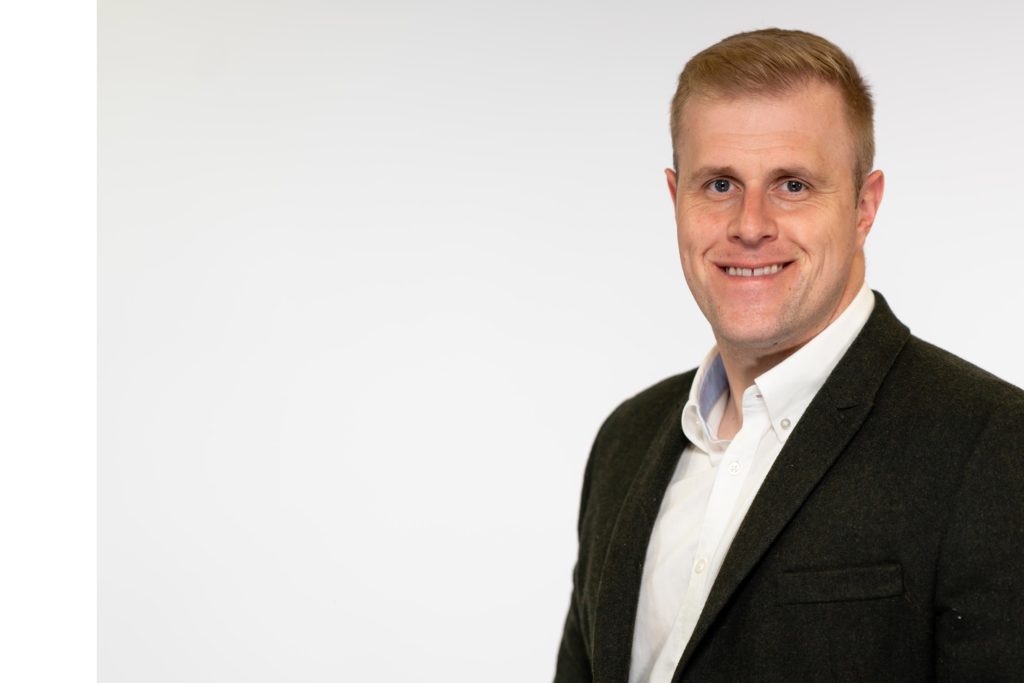
Stuart Bennett
Good practices and desirable qualities for successful candidates.

Stuart Bennett
Good practices and desirable qualities for successful candidates.
Short Biography
Stuart Bennett – Senior Recruitment Consultant – Power Electronics – IC Resources
Stuart works for one of Europe’s largest Electronics and Semiconductor recruitment agencies. He works solely within the Power Electronics, Power Supply and Power Semiconductor arena and has built up a large network of clients and candidates Globally.
Over the last 5 years, he has successfully partnered with some of Europe’s most innovative clients from seed funded start-ups to blue-chip organisations and has placed in excess of 80 engineers onto the next step on their career ladder.
About IC Resources IC Resources is Europe's leading deep-tech recruitment company, covering Technical, Sales and Marketing and Operations roles across Software, Semiconductor, Electronics, IT and Creative.
At an individual level, every person is seeking a successful and satisfying career. At a corporate level, every company seeks out the most talented people who will contribute to the organisation’s long-term success. Our role is to ensure that these individual and communal aspirations are fulfilled through mutually beneficial introductions.
Our goal is simple: to deliver value to the individuals and companies we work with. Our candidates are given well-informed career advice and introduced to opportunities which help them progress their careers. Our clients are introduced to talented individuals with sought-after skills who can help them succeed in a globally competitive marketplace.
Since 1999, IC Resources has been delivering efficient, authoritative, and cost-effective recruitment results, with customer service excellence and rigorous ethical standards being of paramount importance to us.
If you’d like to discuss the employment marketplace, salary levels, your recruitment strategy or indeed your career, please contact us.

Helena Wolf
Good practices and desirable qualities for successful candidates

Helena Wolf
Good practices and desirable qualities for successful candidates
Short Biography
Working Experience: - March 2020 until today Technical Recruiter at Huawei Technologies Düsseldorf GmbH - May 2018–Feb. 2020 Recruiting Specialist at Hays AG in the field of Engineering - Sept. 2016–Dez. 2017 Intern and working student at Siemens AG
Education: - Human resources and labour law at Hof University of Applied Sciences Graduated as : Master of Arts (M.A.) - Business Management at University of Applied Sciences/Campus M21 Graduated as: Bachelor of Arts (B.A.)
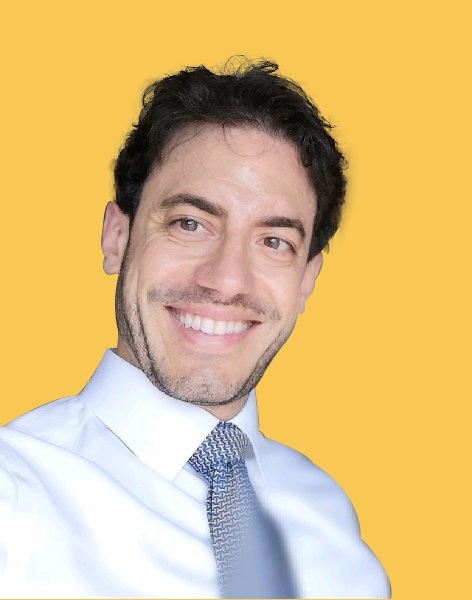
Luca Dalessandro
My experience at the Industry and the Academic work environment

Luca Dalessandro
My experience at the Industry and the Academic work environment
Short Biography
Education: PhD in power electronics ETH Zurich, Prof. Kolar (2006).
Professional Experience: 2008-2011, R&D and Project- Manager @ Alstom (General Electric), Baden & Birr. Focus: Calculation and design of electrical machines 2011-2014, R&D and Project Manager @ ABB, Turgi Focus: HW & SW development MV frequency converters 2014-2020 at Schaffner Group, Luterbach (SO) Since 2016 Group Technology Manager at Schaffner Group. Since Oct. 2020- Managing Director of the ETIX GmbH and Expert at INNOSUISSE
Teaching activities: Virginia Tech (2006-2007), ETH Zurich (2013-2014). Collaboration with many UAS in Switzerland: FHNW (Prof. Wiederkehr), BFH (Prof. Höckel), Hes-So Valais (Prof. Roggo) Since 2017: - Co-chairman of the European PhD Schoon in Power Electronics -Chairman of the IES Chapter - IEEE Swiss Section - Associate Editor of the Transactions on PE and of the Transactions on IE - International Expert of the IEC 77/SS 77A/WG 8 Regulation of the 0-150 kHz Range. Over 30 publications in scientific journals /conferences;10 patents/patent applications https://scholar.google.com/citations?user=yRbs7sQAAAAJ&hl=en

Kateryna Morozovska
My experience at the Industry and the Academic work environment

Kateryna Morozovska
My experience at the Industry and the Academic work environment
Short Biography
Kateryna Morozovska is a PostDoctoral researcher at KTH, Sweden, CTO at Blås Energy and CTO and founder at DTR1. She has been closely working with industry during her PhD at KTH and has 2 years of experience in entrepreneurship.

Stefanie Heinig
My experience at the Industry and the Academic work environment

Stefanie Heinig
My experience at the Industry and the Academic work environment
Short Biography
Stefanie Heinig received the M.Sc. degree in sustainable electrical energy supply from the University of Stuttgart, Germany, in 2014, and the Ph.D. degree in electrical engineering from KTH Royal Institute of Technology, Stockholm, Sweden, in 2020. Her Ph.D. thesis is on the topic of main circuits, submodules, and auxiliary power concepts for converters in HVDC grids. She has been with the ABB Corporate Research Center in Västerås, Sweden, between 2014-2015, and joined the power electronics team at Hitachi ABB Power Grids in November 2020. Her main research interests include power converters for grid applications and grid integration of renewable energy sources.
WIE PANEL DISCUSSION
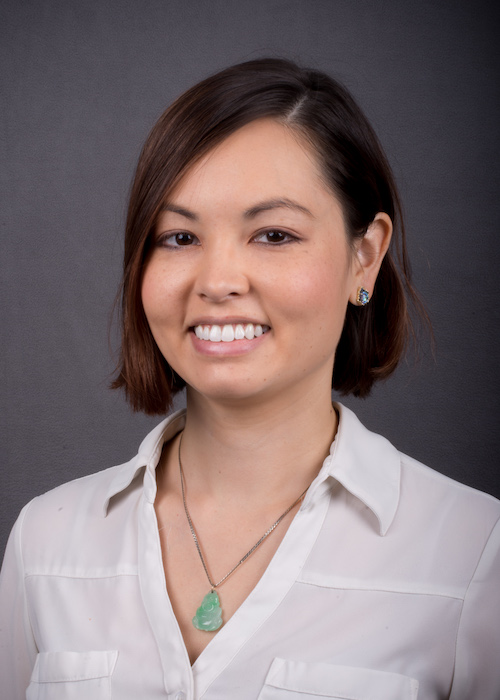
Dr. Kristen N. Parrish
Building Momentum in Industry: Skills to Excel During Your First 5 Years

Dr. Kristen N. Parrish
Building Momentum in Industry: Skills to Excel During Your First 5 Years
Abstract:
Moving from an academic or research-focused environment to a career in industry can be a major transformation point in any professional’s career. Dr. Kristen N. Parrish and Lauren E. Kegley will share the importance of developing skills outside of those which demonstrate pure technical acumen to complement your growth in engineering positions. With different academic / research backgrounds and experience in various industrial roles, Dr. Parrish and Ms. Kegley will share specific advice of how communication, leadership, and networking skills are crucial to developing your career. Within Wolfspeed’s Power division, Dr. Parrish spear-heads new technology introduction / development programs, while Ms. Kegley is leading the product strategy for a power packaging product line. Within IEEE, Dr. Parrish is the IEEE Eastern NC Section Vice-Chair and Ms. Kegley is the IEEE PELS WiE Committee Chair.

Ms. Lauren E. Kegley
Building Momentum in Industry: Skills to Excel During Your First 5 Years

Ms. Lauren E. Kegley
Building Momentum in Industry: Skills to Excel During Your First 5 Years
Abstract:
Moving from an academic or research-focused environment to a career in industry can be a major transformation point in any professional’s career. Dr. Kristen N. Parrish and Lauren E. Kegley will share the importance of developing skills outside of those which demonstrate pure technical acumen to complement your growth in engineering positions. With different academic / research backgrounds and experience in various industrial roles, Dr. Parrish and Ms. Kegley will share specific advice of how communication, leadership, and networking skills are crucial to developing your career. Within Wolfspeed’s Power division, Dr. Parrish spear-heads new technology introduction / development programs, while Ms. Kegley is leading the product strategy for a power packaging product line. Within IEEE, Dr. Parrish is the IEEE Eastern NC Section Vice-Chair and Ms. Kegley is the IEEE PELS WiE Committee Chair.

